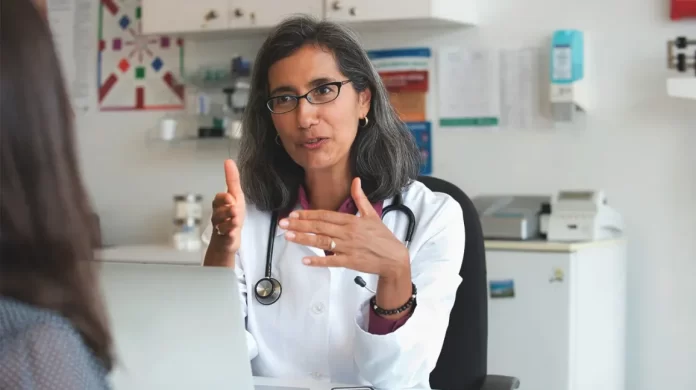Finding the right doctor is essential when managing Crohn’s disease. Since Crohn’s is a lifelong illness, having a healthcare provider you trust and can rely on is crucial for your long-term health. Here are 10 things to look for in a Crohn’s disease doctor:
1. Background in Treating Crohn’s Disease
Your Crohn’s may range from mild to severe, so it’s important to choose a gastroenterologist with expertise in inflammatory bowel disease (IBD). For complex cases, seek a specialist who focuses on IBD. You can find such specialists through medical centers or the Crohn’s and Colitis Foundation of America.
2. Willingness to Collaborate with Other Doctors

Your Crohn’s doctor should be open to working with your primary care physician and other specialists. Whether it’s for other medical concerns or helping you make lifestyle changes (like quitting smoking or improving your diet), teamwork is essential for effective care.
3. Aggressive Treatment When Needed
A good doctor will be proactive in treating your disease and preventing flare-ups, thus reducing the risk of complications like scarring. Preventing inflammation early can help you avoid hospital stays and surgeries, and maintain a normal lifestyle.
4. Open Communication
You want a doctor who takes the time to explain your disease, treatment options, and answers your questions thoroughly. If your doctor is too busy, ensure that someone in the office can provide clarification, such as a nurse or assistant.
5. Compatible Treatment Style
Your doctor’s approach should align with your preferences. Some people prefer a direct, no-nonsense doctor, while others might need a more personal touch. Find someone whose style matches yours.
6. A Doctor You Like
Beyond technical skills, a good doctor-patient relationship is important. If you like and trust your doctor, you’re more likely to adhere to their treatment plan and follow their advice.
7. Focus on Holistic Care
A well-rounded Crohn’s doctor will focus on more than just medications. They should discuss the role of nutrition, exercise, stress management, and potentially surgery, as these factors all play a role in managing Crohn’s effectively.
8. Efficient Office Staff
The office staff should be responsive, polite, and helpful. Whether it’s answering calls, scheduling appointments, or following up on test results, a smooth administrative process ensures you get the care you need without unnecessary delays.
9. Insurance Compatibility
Make sure your doctor accepts your insurance. This will save you from unexpected out-of-pocket expenses and ensure continuous care without interruptions.
10. Easy Access to Care
When symptoms worsen, your doctor should be accessible, whether that’s through quick office appointments, timely responses to calls or emails, or online access to medical records and test results via a patient portal.
What to Do if Your Doctor Misses the Mark
If your doctor doesn’t meet your expectations, you can try the following:
- Bring Questions
Write down your concerns before the visit. Start with the most pressing issues and don’t hesitate to ask follow-up questions, whether in person or via email. - Be Honest
Keep track of your symptoms, treatments, and medications. Be open with your doctor about how you feel and any changes in your condition. It’s also important to inform them if you miss doses of medications. - Consider a New Doctor
If after multiple visits you feel your doctor isn’t the right fit, it’s okay to seek a second opinion. You can reach out to your insurance provider, friends, or the American College of Gastroenterology for recommendations.
Also Read : 16 Evidence-Backed Ways to Reduce Stress



